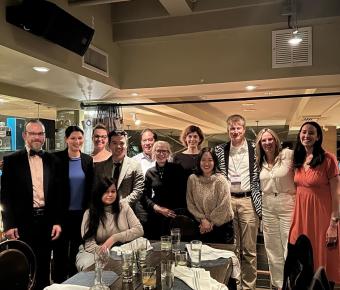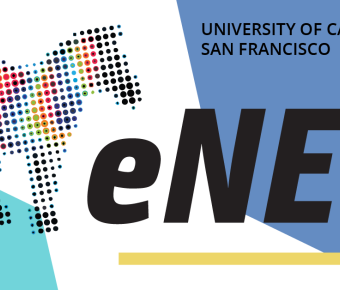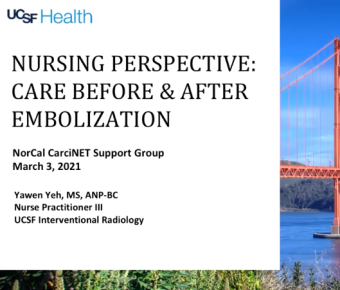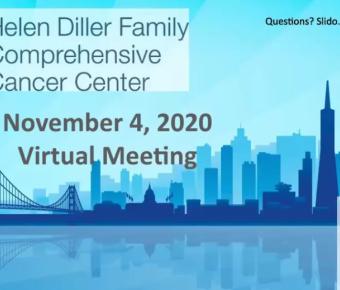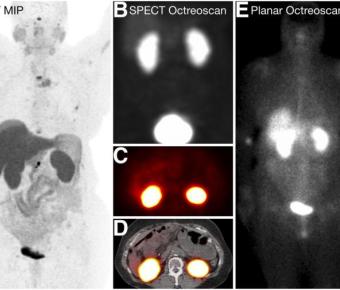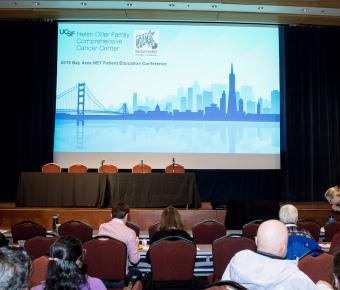UCSF Team at 2022 Multidisciplinary NET Medical Symposium
Claire Mulvey, MD receives Spring 2022 RAP Funding for eNet Study
New eNET Study Open
Clinical and Genomic Characterization of Treatment-Emergent Small-Cell Neuroendocrine Prostate Cancer
NETRF funds $3.5 million in research to advance neuroendocrine tumor treatment
PET offers more precise screening method to select candidates for radionuclide therapy
2019 Neuroendocrine Tumor Patient Conference
NETRF Announces $2.5 Million in Research to Advance the Treatment of Neuroendocrine Tumors
June 2017, Dr. Emily Bergsland received the Ernest H. Rosenbaum, M.D., Commitment to Patient Care Award for her long-standing dedication to her patients and ongoing efforts to improve care for people with neuroendocrine tumors. The award recognizes clinicians who are deeply committed to the highest quality patient care.
In December 2016, Dr. Thomas Hope received the first NETRF/ERF Nuclear Medicine Pilot Research Grant. The Neuroendocrine Tumor Research Foundation (NETRF) established the grant to explore innovations in nuclear medicine focused on diagnosis and treatment. The Education and Research Foundation for Nuclear Medicine and Molecular Imaging (ERF) solicited proposals and convened the scientific review panel to select the recipient. Hope’s project is titled “Intra-Arterial Peptide Receptor Radionuclide Therapy (I-A PRRT) using 90Y DOTA-TOC.” The primary goals are to evaluate possible liver, bone marrow and kidney toxicity after hepatic arterial injection and to evaluate imaging tumor response three months after treatment. Dr. Hope’s principal co-investigators are Dr. Emily Bergsland and Dr. Nicholas Fidelman.
In 2016, the Neuroendocrine Tumor Research Foundation recognized Dr. Eric Nakakura for his projected titled “Development of a Mouse Model of Pancreatic Neuroendocrine Cancer.” His xenograft mouse model will be useful in helping develop and test potential new therapies for pancreatic neuroendocrine tumors.
In 2016, the Neuroendocrine Tumor Research Foundation named Dr. Michael Germanthe NETRF Petersen Investigator for his project titled, “Treating Neuroendocrine Tumors via Synthetic Lethality.” His research aims to analyze how certain pathways interact to control neuroendocrine cell survival and death, and to evaluate synthetic lethal interactions—a gene therapy targeting cancer cells—in a patient-derived xenograft tumor model of pancreatic neuroendocrine tumors.
What is PRRT?
For evaluation, please request an appointment.
PRRT stands for Peptide Receptor Radionuclide Therapy. Peptide refers to a small molecule that is very similar to the naturally occurring hormone somatostatin. We call it a somatostatin analog, meaning that it is similar but not identical to somatostatin. There are a number of somatostatin analogs that are use in patients with neuroendocrine tumors including octreotide, sandostatin, lanreotide. These peptides bind to the somatostatin receptor that is expressed on the majority of neuroendocrine tumor cells.
When binding to these receptors the peptide is brought into the tumor cell and stays there. Because neuroendocrine tumor cells are one of the few cells in the body that express somatostatin receptors, we are able to target our peptide to the tumor cells using the receptor. Radionuclide refers to the radiation that we attach to the peptide.
There are different types of radiation that we can use, but in PRRT all the radiation given off is the type that can be used to kill cells. Therapy refers to the idea that we are using peptides to target the receptors and bring the radionuclide into the tumor cells in order to treat the cells. That is PRRT.
Complicated Case Presentation: Management of Pancreatic Neuroendocrine Tumors in Multiple Endocrine Neoplasia Type 1.
Radioembolization with 90Y glass microspheres for the treatment of unresectable metastatic liver disease from chemotherapy-refractory gastrointestinal cancers: final report of a prospective pilot study.
UCSF Drs. Eric Nakakura and Emily Bergsland discuss carcinoid syndrome on ITV
June 20, 2016
Dr. Emily Bergsland - NET Primer
January 24, 2016
The Patient & Family Neuroendocrine Tumor (NET) 2016 Conference
January 2016, Mission Bay Conference Center
Hosted by the HDFCCC in cooperation with NorCal CarciNET, NET Research Foundation, and Stanford University Medical Center
